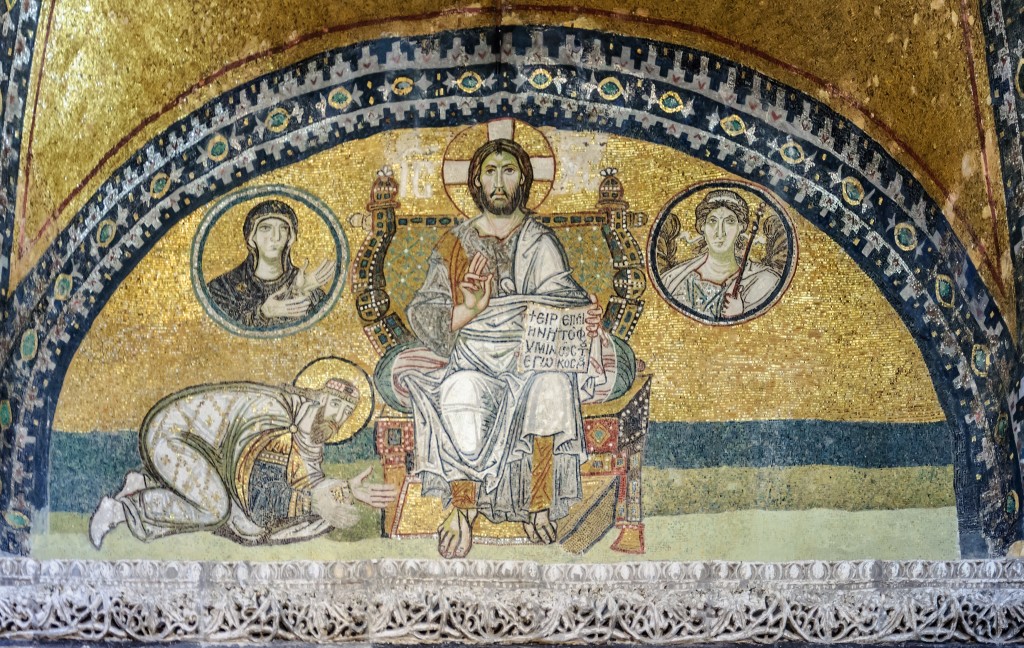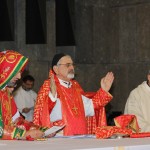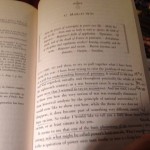
Around my sophomore year in high school, my uncle told me that his neighbor was a lawyer. I had wanted to become a lawyer ever since my father planted it in my head in middle school that I was good at English. Before that, I had actually wanted to become a doctor, not because I’m Chinese and my parents wanted me to, but because I had this coloring book for human anatomy, and I liked it. I heard about residencies, though, and concluded that I valued my sleep. I also learned that if I wanted to become a lawyer, I could major in history in college, and who doesn’t want to do that?
In any case, I met this lawyer and quickly decided I didn’t one to be one either. It wasn’t really that he was a jerk or anything, but he told me about all the late nights of studying and all the laws you had to learn and all the other stuff you tell a high school kid to scare them off (like about the bar exam), and as a high school kid, I was scared off, and I told my dad and uncle so after the meeting.
I was in California at the time, and this was around the time that there was so much talk about 9/11 and the looming Iraq War that I began changing my convictions. The truth is that I went to a Pentecostal elementary school that glorified the military, and it wasn’t until getting to Catholic high school that I started learning about just war theory and pacifism and Catholic social teaching. As I’ve blogged about previously, this sort of resulted in a crisis when I started thinking about the mismatch between where I was going ideologically and the victory stories my Shanghainese grandfather had told me about how awesome it was that the Americans had dropped the atomic bomb on Hiroshima and Nagasaki. I was also Canadian – I had known this ever since I saw as a little kid that everyone in our family had a card that said ‘Resident Alien,’ and I asked what planet we were from – so I thought that the best way forward would be to consider going home to Vancouver and attending my father’s alma mater, the University of British Columbia (UBC). The tuition there was also far more affordable than any American school.
One of the things that I wanted to retain after my big lawyer dream was over was the history major thing. UBC has a phenomenal undergraduate history program, and I ended up taking the honours program as an undergraduate there because all the classes were seminar-based with no exams (I hate exams).
As a high school junior, though, I wanted to see what classes they had on offer at the history program, and that’s when I stumbled across the course ‘Byzantine Empire,’ a course that to this day I still regret not taking.
I knew something of the Byzantine Empire because, as I said yesterday, we had covered it in World History in seventh grade. That was back at the Pentecostal school, and we used a textbook from Bob Jones University, which is infamous for being the fundamentalist Baptist college that one time nearly had Billy Graham expelled. Truth be told, that textbook was way nicer to the Byzantines than to the Latin Church. Both, we were told, worshipped idols, but the impression I got was that Byzantine iconography was pretty impressive to look at, that their churches had a cool name called ‘Orthodox,’ and that they had an emperor called ‘Justinian’ who compiled this big law code from the Romans, and my name is Justin, and at the time I wanted to be a lawyer and fulfill my destiny. We learned that because the emperor who made Byzantium his eastern capital was called Constantine, it was called ‘Constantinople,’ and that’s why the Orthodox are called ‘Eastern Orthodox.’ We also learned about the big cathedral called the Hagia Sophia which had beautiful acoustics, and I nearly squealed about a year later when I started really getting into all the James Bond movies when 007 gets plans for a heist at the Hagia Sophia in From Russia with Love, which I had learned (and the movie confirmed) had become something like a mosque, and then a museum or something, after Constantinople became Istanbul. Looking back, I’m actually pretty impressed that the Bob Jones University covered all of this and that my Pentecostal teacher took the time to be as fair as she could be with Orthodoxy and the Byzantine Empire.
This gave me an idea. If I didn’t want to become a doctor, and I didn’t want to be a lawyer, but I still wanted to be a history major, maybe I could grow up to be a historian of the Byzantine Empire. My dad, who is a Protestant pastor, told me to go for it. He had studied at the Graduate Theological Union in Berkeley, and he said that church history was one of his favourite courses, but unfortunately, he felt that he was too old and stubborn to learn any of the required languages in depth, but he was sure that I could learn them. I quickly tallied up all the languages I’d need to know to study the Byzantine Empire – probably Greek, Latin, and maybe German. I was already in French III at the time and was going to take AP French the next year, so that was covered. It was too bad that the Latin teacher at the high school at that time had recently reposed.
And then, I made the mistake of telling people at my Cantonese evangelical church. Of course, they didn’t worry too much about the icons because they didn’t know what those were. They were concerned that in this iteration of my future career dreams, I had chosen something completely impractical. My youth group leader, who was an accountant, said that I should really choose something more practical, something that makes money and where I can live a quiet, decent life. Interest is interest, but work is work.
I got mad. For all my griping about Chinese evangelicals and the model minority and everything else, I had actually never had anyone say that to me in that way before. Sure, I had all these friends whose parents were pressuring them to have 4.5 GPAs and a bazillion extracurricular activities so that they could get into Harvard, but getting into Harvard wasn’t so that you could get something practical and live a quiet life (so I thought) – it was so that they could get out of the suburbs and make it big and move to the city and get filthy rich (I thought). But as I began to look around, that seemed to be the general consensus among my friends too – their parents were starting to tell them to do something practical, which were not all the things that they were doing at the moment: piano, violin, cello, orchestra, this sport, that sport, reading ‘classic books’ (the more unabridged, the better), etc.
So in a fit of anger, I made the fatefully irrational decision at the ripe old age of 16 to do the most impractical thing possible: study the history of the Chinese church, by which I meant Protestants outside of China; this, of course, is how I ended up in Asian American studies. Reading James Baldwin interestingly helped with this decision, as did starting to write fiction for the literary magazine I started with a priest who later told me that everything he was teaching me I could learn from a guy with the peculiar name of Hans Urs von Balthasar.
Because of this, the Byzantine historian dream was very short-lived. I ended up majoring in history without learning about the Byzantine Empire, although I did take a nearly impossible course taught by a guy who told us he was legally blind called ‘History and the Novel,’ where we explored the question of whether a novel could be used as a primary source in historiography and read a bunch of Russian novels (including Dostoevsky’s Demons) to figure it out. It was nearly impossible because the blind professor subjected nearly every word that every student said to such deep scrutiny that we became terrified in his presence, and I am now trying to do the same for my students now. But I don’t think we said much about Orthodoxy because we were trying to figure out who all these folks called the intelligentsia were.
In any case, I subsequently defected to geography because an urban geographer told me he was interested in my topic, and I ended up therefore becoming a social and cultural geographer of religion with a focus on urban sites, Asia-Pacific migrations, and Asian American studies. The neat thing is that a disproportionate amount of stuff in feminist geographies of religion is written on Istanbul, so I get to learn about that from my colleagues from time to time. For my part, I sometimes write on my double-blind peer review reports for colleagues submitting work on theology and geography to consider Byzantine theology and practice in their work; if you got one, now you know it was me (the last one was over a year ago, and it was positive, so who cares?).
And yet, by some strange work of the Holy Spirit, it was these interests in Chinese Christianity and then getting sucked into the discipline of geography that converged that time I met that Eastern Jesuit in front of the Chinese Consulate as we prayed in solidarity with Hong Kong’s Umbrella Movement. The truth is that at that time, I had come around on the icon question because people on the evangelical left as well as in Anglicanism really like icons; in fact, I was canonically Anglican while attending a multicultural Asian Canadian evangelical church that met in a community centre at the time, and the pastor loved using icons on his PowerPoint while he preached. They also put up Rublev’s Trinity during communion every week.
I feel like the Holy Spirit knows what he’s doing. I feel like I’ve been prevented from being an expert on the Byzantine Empire, even though that junior high class was cool and James Bond was in the Hagia Sophia and I neglected to mention that Byzantium is the one book by Stephen Lawhead from around that time I haven’t read, although – to be fair – I was reading Dostoevsky and Tolstoy in high school, and then there was that impossible course called ‘History and the Novel.’ But I have this very non-expert, extremely amateur Byzantine blog, and the truth is that I not only feel humbled by my non-expertise, but I am thankful to have a place to figure out publicly and in writing what all of these crazy experiences as an Eastern Catholic in a Byzantine church are about, and I am blessed to have a bunch of critics who are not shy to inform me that what I have to say is nonsense.
Maybe, then, this is my way of echoing what the emissaries of Holy Volodymyr Equal-to-the-Apostles told him about the Hagia Sophia, what was also told to me on my first time entering a Byzantine temple by the guy who became my spiritual father: Then we went to Greece, and the Greeks led us to the edifices where they worship their God, and we knew not whether we were in heave or on earth. For on earth there is no such splendor or such beauty, and we are at a loss how to describe it. We only know that God dwells there among men, and their service is fairer than the ceremonies of other nations. For we cannot forget that beauty. Every man, after tasting something sweet, is afterward unwilling to accept that which is bitter, and therefore we cannot longer dwell here‘ (Primary Chronicle).
Though Justinian mused that he had outdone Solomon, let my response still be that of the ancient king enthroned in Jerusalem, though I govern neither in the academy nor the blogosphere: May You give Your servant an understanding heart to discern between good and evil.
















